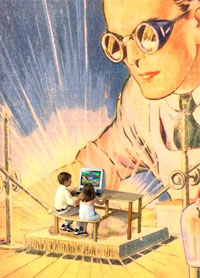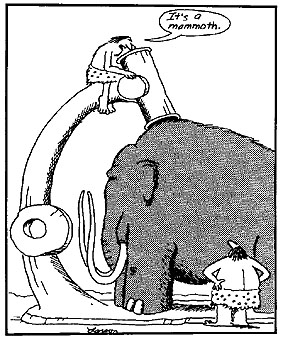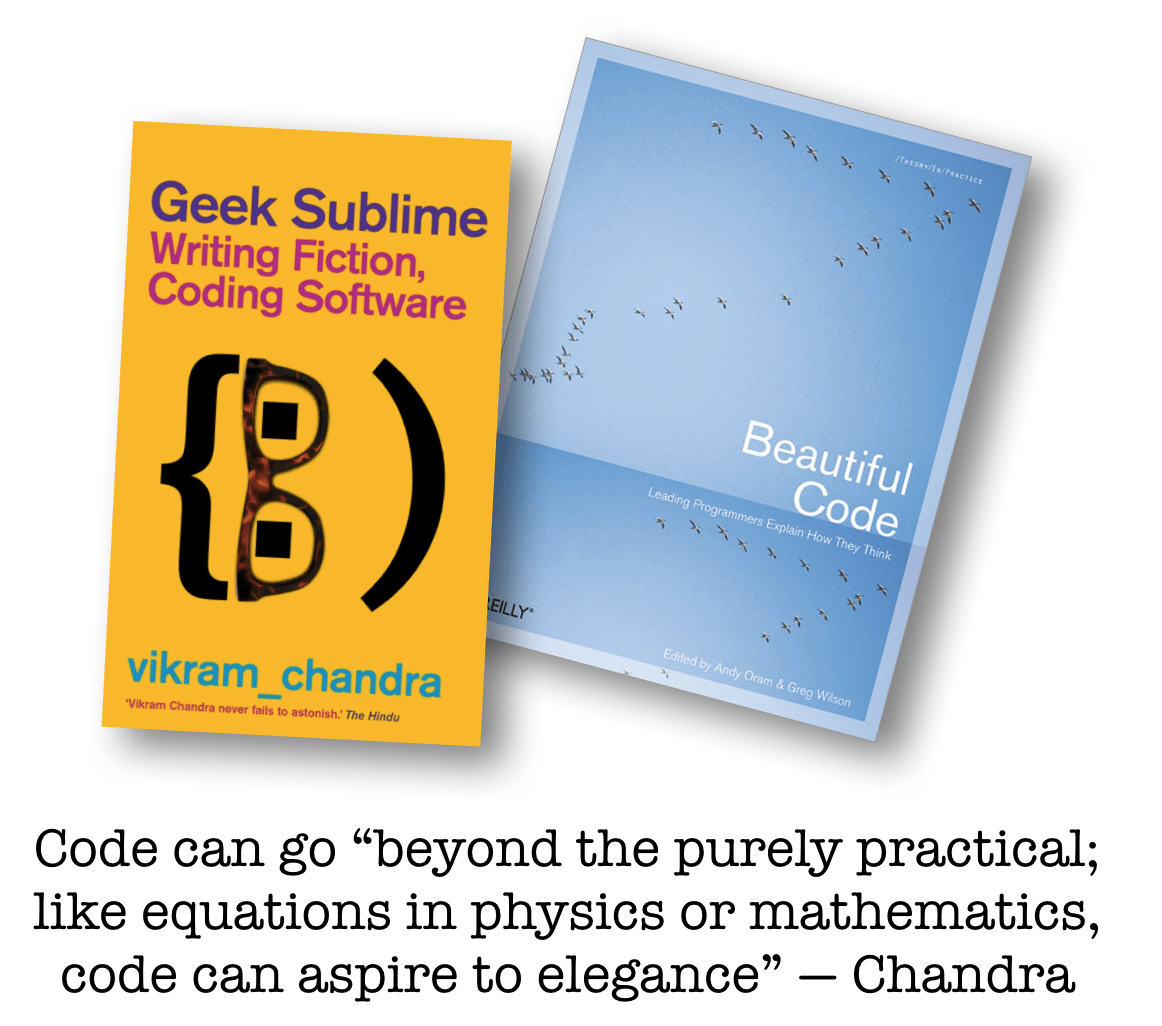Patrick Dickson just forwarded an article in the APA Monitor titled Beyond chalk and talk, in which Art Graesser, the new editor of Journal of Educational Psychology, indicates an openness to including more technology related articles in JEP. Patrick argued that this means that JEP could be a good site for future publications by faculty and graduate students in educational technology. I am not so sure.
 The article begins as follows:
The article begins as follows:
Millions of children and adults play video games each day—in fact, video game design is the fastest growing U.S. industry. And while many video games are pure entertainment, others, such as the popular America’s Army, are teaching content to gamers of all ages, which makes incoming Journal of Educational Psychology (JEP) editor Art Graesser, PhD, wonder: Why isn’t education more plugged into gaming?
It goes on to argue that JEP would be more open to articles on technology and education.
The problem it seems to me is not that there isn’t research on the role of technology in education but rather that the field of educational psychology needs to rethink how it defines research in the field. Is it true that education is not plugged into gaming? I don’t think so. It is just that there haven’t been many articles in JEP about gaming. But that is not the fault of gamers and educational technologists. Not at all.
For the most part, a classic ed psy study takes a couple of years from conceptualization to implementation to analysis to manuscript – and then a year or so by the time it goes through reviews and revisions till final publication. Given the rapid rate of change in technology, this means that a publication is out of date by the time it reaches readers. By this time, the technology being studied is most probably out of date. In the fast changing world of educational technology, this is a problem.
Moreover, the demands of experimental rigor (often required for journals such as JEP) frequently mean that studies that make the cut are narrow in focus, or based on well funded research projects geared around developing specific software programs that have a tight and specific pedagogical role. This is all very good, but it seems to me that most of the action in the field of educational technology is happening not in large, funded projects bent upon developing new tools, but rather in generic, all purpose, maybe even free, software tools that can easily be used by teachers.
Think a moment about how many multi-million dollar federally funded projects have ever lasted beyond the expiry of the grant. (Do a search on NSF.gov website to see for yourself.) In contrast, the US Department of Education funded PT3 projects, with much looser guidelines about what constitutes research, have had a greater impact on teacher education programs and technology integration than any of these research-based grants. Now this is not to knock these research projects (clearly they play an important role in showing us what is possible) but rather to say that the matter of not enough educational technology research is a complex problem and not one that can be solved by more “classic” ed psy research.
Imagine conducting a rigorous study on the value of blogging on student writing. By the time you conduct the study, blogging itself may be less relevant technology. And more importantly, in conducting the research you would have lost opportunities to actually work with teachers and students and deepening your understanding of what benefits it may have. I have always used the example of Hypercard, a technology that was huge back in the early 90’s. Hundreds of studies were conducted and published about the educational uses of Hypercard. None of those studies mean anything much today. Such is the nature of technology.

However, if these studies had focused on broader issues of design and how one develops tools for learning, the situation would not be as bad. These “process” studies would still be informative – since issues of design (of what I have elsewhere called the act of going from “thought to thing”) are still important today. However, such a process study would not be published by JEP.
As an aside, I should add that it was this very reasoning that made me include a chapter on design in my dissertation back when I was developing a software program to teach about the periodic table of elements. My gut instincts were on the mark. A chapter that I published about the design process, still seems relevant today. The software I developed does not work any more since one of the plugins that it needed no longer exists today!
I would argue is what we need is not more journal articles but rather a new paradigm of research. A paradigm that is sensitive to the fact that we live in a new world, a world where things change fast and that research and its dissemination needs to reflect this.
To be blunt, JEP as a journal is not very relevant to educational technology researchers. I learn more about educational technology by following blogs and the websites than through any educational journal. Frankly, it seems to me that the main reason articles are published in many of these journals is to help academics get tenure. And over time this influence these journals have will wither away. That won’t happen anytime soon, but I know that there will come a day when some faculty member will receive tenure for maintaining an influential blog…
Of course, JEP and other journals of its ilk, could change. Clearly JEP has a superior brand name that it can leverage in this world of the Internet, but it will need moving away from a commercial publishing model to something else… exactly what it will be I am not sure of but there are some interesting opportunities here, if someone is willing to step up. However, I am not confident that this will happen anytime soon. I have blogged about a recent initiative here and here.

* Illustration constructed by Punya Mishra from images available here and here. Cartoon from here and Ed-Psy ambigram by Punya Mishra.


Your recent initiative on your post about “breaking free of academic publishers” is very great. I salute to you.
Good post, and for the most part I do agree. Although, I do think that being open to educational technology studies is a good thing, and a step in the right direction. I think skepticism is warranted.
For example, an example of a study that would be ideally suited for JEP would be the one conducted by the National Center for Education Evaluation and Regional Assistance called Effectiveness of Reading and Mathematics Software Products: Findings from the First Student Cohort,” (Dynarski et al., 2007). In fact, this type of research is often disappointing, in that simply making good experimental design leaves out answering the important questions of what individual teachers do with technology, and considering the full interactions of how technology, content matter, and pedagogical approach interact. For a full critique of the study, please see our editorial.
Another problem with the idea of doing “good experimental design” when it comes to technology research, was best illuminated by my own effort to get published in JEP when I was a graduate student. Armed with a nicely designed hypermedia environment, I tried to study its ability to perhaps impart better understanding to learners. I made the best control group possible, giving other learners videos, and documents about the same material. The Editor at the time called this type of research “disappointing” and a classic example of what was wrong with technology research in that it “compared apples to oranges.” *SIGH* Wasn’t that the point?
Since then, I published it the Journal of Educational Multimedia and Hypermedia, and have found the Journal of Cognition and Instruction to be a good place to publish high-quality technology research.
As far as the JEP goes, let’s hope times are changing. I for one will hope for the best but expect the worst.